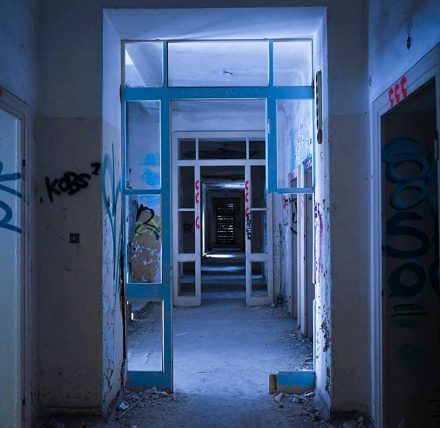


The New Ownerless Property Transfer Scheme: Has Falkirk Council shown us the future for Scotland’s neglected and ownerless property?
INSIGHTS
In March this year, the Ownerless Property Transfer Scheme (OPTS) was launched to try and address the issue of ownerless property in Scotland. With Falkirk Council recently becoming the first local authority to benefit from the new scheme, it is hoped this will set the trail blazing in offering communities across Scotland the chance to rejuvenate neglected areas and buildings for local benefit.
What is the OPTS?
In Scotland, property which is classed as “ownerless” falls to the Crown, who are represented by the King’s and Lord Treasurer’s Remembrancer (KLTR), to deal with ownerless property, which is legally referred to as “bona vacantia”. The KLTR formally launched the OPTS on 1 March 2024, with the aim of removing the hurdles associated with bringing ownerless property back into use for community benefit. The primary goal is that ownerless property, that consists of derelict spaces or buildings, will be converted into beneficial community resources, which over time will foster economic development and community wellbeing. The scheme aims to be particularly significant in areas where abandoned properties contribute to urban decay and social issues.
Conventionally, the KLTR has a duty to sell ownerless property at ‘best value’ (which usually means market value) or alternatively, they ‘claim’ the ownerless property for the Crown. However, the OPTS provides the KLTR with an opportunity to take a different approach, in the appropriate circumstances, by allowing the KLTR to offer to sell ownerless property for a nominal value where it is in the public interest. In theory, this will allow public bodies, local authorities, or members of the community (who intend to create a community body) to purchase properties at a reduced cost, prioritising public good over financial gain. This innovative approach aims to repurpose previously ownerless property to serve local needs and encourage public bodies, local authorities, and community groups to work together for long-term community benefit.
Whilst the OPTS purports to provide a solution, there are still many obstacles to overcome. The process itself can be time-consuming that requires legal expertise along with strong local support and a solid business case, that clearly illustrates the public interest and community benefit that an OPTS transfer of the ownerless property in question would bring. Therefore, public bodies, local authorities and community bodies should exercise due caution and ensure that they have the sufficient funding, expertise and staff in place to implement the scheme and carry out the required improvement works to bring the ownerless property back to life.
Falkirk Council
The hope that the OPTS will positively impact local communities was reaffirmed recently when Falkirk Council (the “Council”) become the first local authority in Scotland to successfully utilise the OPTS. The Council was able to acquire the ‘eyesore’ abandoned and derelict Royal Hotel in Slamannan for just £1 and coverage of the KLTR’s external costs. The hotel lay empty for more than two decades and will now be demolished before being transformed into green space with the local community then asked to take part in deciding how the space should be used in the future.
The Council’s project was the only local authority initiative from one of 15 pilot projects chosen by the KLTR to benefit from the scheme before it was formally launched and it is hoped that the success of Falkirk Council with the OPTS, will set a compelling example for other local authorities in Scotland and encourage them to utilise the scheme. The overarching hope being that as more local authorities use the scheme, the cumulative impact could lead to widespread revitalisation of abandoned urban and rural areas across Scotland.
Conclusion
The OPTS aims to take a significant step forward in seeking to address the issue of abandoned properties in Scotland by facilitating the transfer and repurposing of ownerless properties by looking to offer a proactive solution to urban blight and community decay. Despite, it being early days for the scheme and the challenges that will be faced in the legal process, Falkirk Council’s first use of the scheme underscores its potential to bring about meaningful change. As the initiative gains momentum, the potential to bring economic, social, and environmental benefits to local communities from once problematic ownerless properties, is clear for all to see.
Could your community benefit from the Ownerless Property Transfer Scheme? If you have any questions about how our Public Sector and Social Housing Team can help, please contact Euan Bathgate.
About the author
Senior Solicitor
RELATED
CONTACT US
Call us for free on 0330 912 0294 or complete our online form below for legal advice or to arrange a call back.